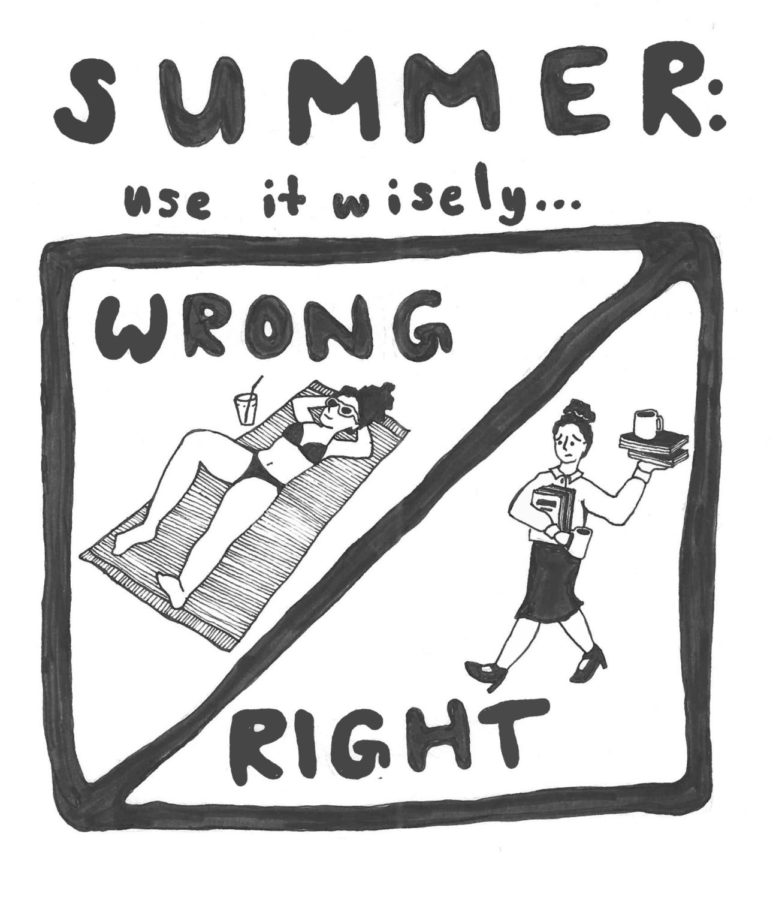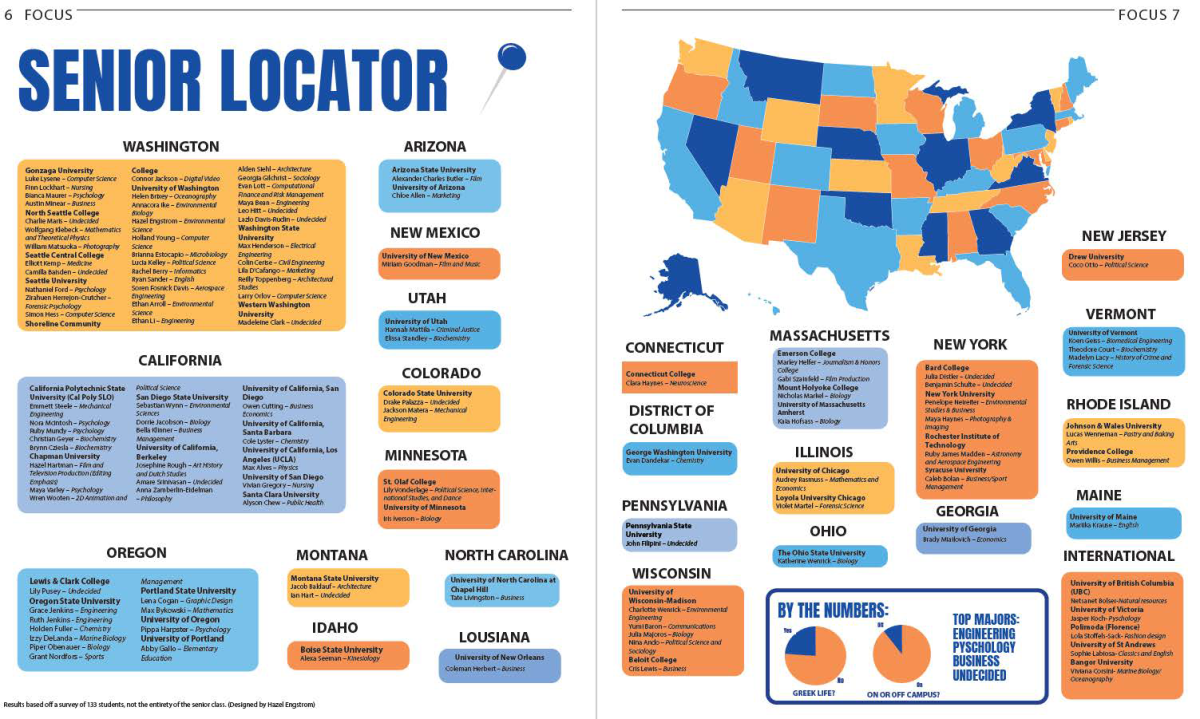The summer dilemma
How our culture has begun putting pressure on our breaks
Students feel more pressure to fill their summers with activities to gain accolades, instead of having fun.
June 23, 2023
For high school juniors, the summer break between their junior and senior years is often viewed as a crucial time to boost their college applications. The pressure to intern or work towards college applications can be overwhelming, especially with the expectation of demonstrating impressive extracurricular activities and gaining valuable work experience, all while trying to enjoy your last summer as a highschooler.
I am no stranger to this, as I applied for an internship at UW, but the reasoning behind my application was similar to most people: I thought that it would bolster my college application and help me develop skills for my future.
However, the pressure surrounding the idea of being successful and vigilant during the summer in recent years has caused many students to stagnate and burn out faster in the coming school year.
Often overlooked is the toll internships and the pressure to get ahead during your three months of break takes on students’ mental health. The pressure to excel academically, participate in extracurricular activities and now secure prestigious summer experiences can lead to burnout and increased stress levels. The constant anxiety of meeting these expectations can have long-term negative effects on students’ mental well-being, leading to anxiety disorders, depression and especially academic underperformance.
Instead of fostering equal opportunities for all students, the emphasis on summer internships perpetuates a system that benefits a privileged few.
By fixating on summer internships and resume-building activities, we also consistently fail to recognize the inherent value of experiences that cannot be quantified on a college application. Activities like volunteering, pursuing personal hobbies or spending quality time with loved ones offer valuable life lessons and contribute to the development of an individual.
These experiences, although not easily quantifiable like internships and jobs may be, shape character, foster empathy and provide unique perspectives that are equally valuable as any internship experience.
Furthermore, Society for HR Management held surveys about the benefits of internships, which included talking about the expectations for internships from highschoolers that are not always met.
But most of all, the summer before senior year is a time that should be spent bonding with family and friends, enjoying leisure activities and recharging for the final push ahead. Students already endure immense academic and extracurricular pressures throughout the school year, and they deserve a break.
Constantly keeping students focused on college applications and resume-building activities strips them of the joy and relaxation that summer should provide, and by pressuring students into internships and other activities, we rob them of the opportunity to discover their true passions and limit their personal growth.

























